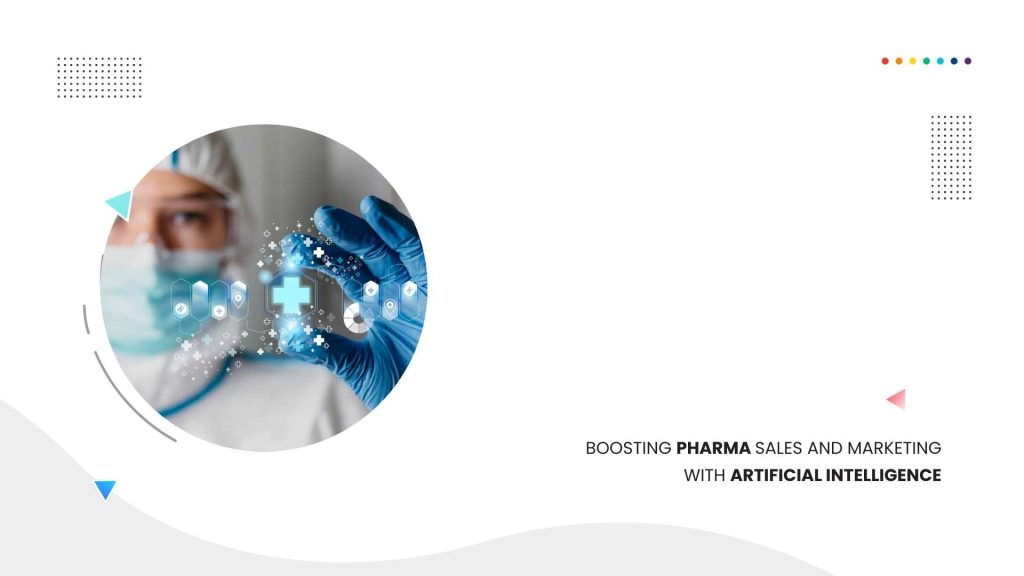The pharmaceutical industry has always been a data-rich environment. Particularly in the U.S., this sector has amassed vast information about healthcare professionals(HCP), encompassing their demographics, specialties, educational backgrounds, institutional affiliations, and prescribing behaviors. This rich tapestry of data offers a goldmine of opportunities for leveraging artificial intelligence(AI) to enhance sales and marketing efforts.
In contrast, leading e-commerce providers like Netflix and Amazon excel in product data but lack comprehensive customer information. While they have extensive data on their products and associated attributes, their customer information is limited, which is crucial for creating differentiated customer experiences. This comparison underscores the pharmaceutical industry’s unique advantage in utilizing AI to drive personalized and impactful commercial strategies.
Key Use Cases for AI in Pharma Sales and Marketing
Customer Affinity Prediction
AI algorithms can analyze extensive datasets to predict customer preferences with impressive accuracy. By examining factors such as prescribing patterns, previous interactions, and demographic information, AI can identify which healthcare professionals are most likely to be interested in specific products. This allows sales teams to concentrate on high-potential leads, optimizing their outreach efforts and enhancing conversion rates.
Customer Journey Design
Designing an effective customer journey is essential for engaging healthcare professionals (HCPs) at every touchpoint. By leveraging AI, companies can map out detailed customer journeys through analysis of historical data and prediction of future behaviors.
This technology enables pharmaceutical companies to develop personalized and dynamic engagement plans tailored to the specific needs and preferences of each HCP. Providing customized content, timely follow-ups, and relevant information can enhance the customer experience and create stronger connections.
Next-Best Actions and Suggestions
AI-driven next-best-action (NBA) models can provide sales and marketing teams with actionable insights on the optimal steps to take for each customer. By analyzing past interactions, current engagement levels, and market trends, AI can recommend the most effective actions, such as scheduling a meeting, sending an educational resource, or offering a special promotion. This strategic guidance helps maximize the Impact of each interaction, driving higher engagement and sales.
Patient Switch Propensity and Adherence
Ensuring patients adhere to prescribed medications is essential for treatment success and pharmaceutical sales. AI can detect data patterns to indicate the possibility of patients switching medications or discontinuing treatment.
Identifying at-risk patients allows pharmaceutical companies to proactively engage healthcare providers, address potential issues, offer additional support, and encourage adherence. This approach improves patient outcomes, strengthens brand loyalty, and boosts sales.
KOL Mapping and Influence Networks
Key Opinion Leaders (KOLs) play a significant role in shaping medical practices and prescribing behaviors. AI can map out KOL networks by analyzing publications, conference activities, and social media presence.
Understanding the influence and reach of KOLs allows pharmaceutical companies to strategically engage with these thought leaders, amplifying their messages and expanding their influence. This targeted approach can drive greater awareness and adoption of products within the medical community.
Limitations and Considerations With Machine Learning
While AI holds immense potential, it is not without limitations and considerations:
- Data Quality and Integration: The effectiveness of AI models depends heavily on the quality and comprehensiveness of the data. Ensuring accurate, up-to-date, well-integrated data sources is crucial for reliable predictions and insights.
- Privacy and Ethical Concerns: Handling sensitive healthcare data requires strict adherence to privacy regulations and ethical guidelines. Ensuring patient and HCP data confidentiality is paramount to maintaining trust and compliance.
- Human Oversight: Despite the capabilities of AI, human expertise and judgment remain essential. AI should complement human intelligence, not replace it. Combining AI insights with human reasoning, problem-solving, and creativity ensures more nuanced and effective decision-making.
Conclusion
Acumatica Cloud ERP delivers a robust and comprehensive solution tailored for the pharma industry. It streamlines and optimizes operations and assures compliance with stringent regulatory standards. Its integrated modules for inventory management, financials, manufacturing, and distribution are specifically designed to meet pharmaceutical companies’ unique needs.

Vijay comes with a vast experience in ERP and enterprise solutions space with about 20 years of experience in various packaged application like Acumatica, SAP, Orion, Salesforce.com, SugarCRM and, SalesLogix.

